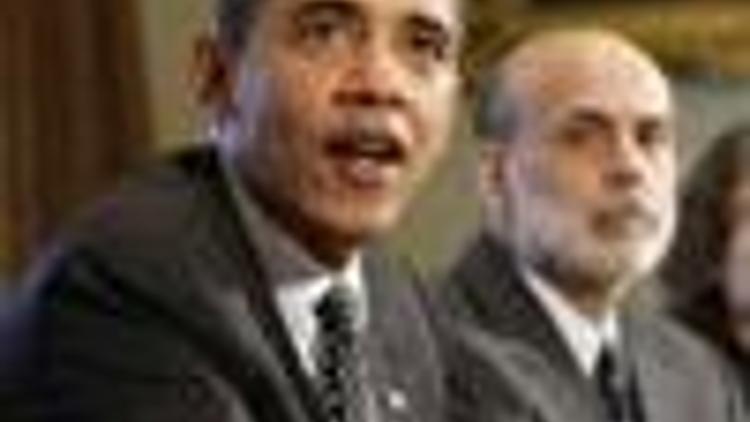Obama calls for G20 to agree on more action for global recovery
Güncelleme Tarihi:

U.S. President Barack Obama urged fellow leaders on Tuesday to agree swift action at a G20 summit next month to spur global recovery a day after Washington unveiled a plan to soak up toxic assets plaguing credit markets.
In an article for German newspaper Die Welt, Obama called for an agreement on stimulus measures at the April 2 meeting in
"First, we must take quick measures to stimulate growth," Obama wrote, according to the German translation of his comments.
The
But Obama suggested it was too early to close the taps with public funds.
"If the
U.S. Treasury Secretary Timothy Geithner on Monday detailed a raft of incentives for private investors to buy up to as much as $1 trillion of troubled assets that have strangled global debt markets and pushed the world economy into its worst slump since the 1930s.
By bringing in private investors, the
Relief that the details of a long-awaited scheme were finally out and hopes that it will attract enough buyers to unclog credit markets spurred a stock market rally and lured investors back to riskier assets such as high-yielding currencies.
Asian stocks climbed 2 percent to a two-month high in tow of a
CRITICAL MASS
But analysts poring over the plan's details wondered whether the scheme would reach a critical mass to spur economic recovery and some highlighted its lopsided nature -- the potential for profits for private investors and the brunt of potential losses being borne by the taxpayer.
Nobel Prize-winning economist and New York Times columnist Paul Krugman slammed Geithner's plan.
In his Monday column, Krugman said it was a rehash of a "cash-for-trash" proposal the Bush administration floated last fall, and that the incentives meant investors could profit if asset values increase but "walk away" if they fall.
Some economists said Obama's administration will have no choice but to ask lawmakers to ask for more money to extend the scheme at a time when the
"The biggest question is whether there is enough money here," Standard Chartered economists said in a note.
"By some estimates the toxic assets will eventually total in the $2-4 trillion range, as more keep emerging, while property prices continue to fall and the recession worsens."
The Treasury plans to use $75-100 billion from the $700 billion bank bailout fund approved in October to get the asset-buying scheme going, and Geithner said there was enough money for now. But he admitted more money may be needed in the future to finance the bank sector clean-up.
"We put in the budget a reserve fund to recognize the reality that it may be that we need more resources to do this," he told a forum sponsored by The Wall Street Journal.
In a reminder of the soaring cost of putting the world's biggest economy back on track, a member of Obama's Economic Recovery Advisory Board warned the
"I'm afraid that the economy will continue to slide down well into next year," Martin Feldstein, a Harvard University professor and former head of the National Bureau of Economic Research, told Reuters in an interview in Beijing.
Obama signed into law last month a $787 billion fiscal stimulus plan and Feldstein said it may take another package of similar size or even bigger to spur growth.

